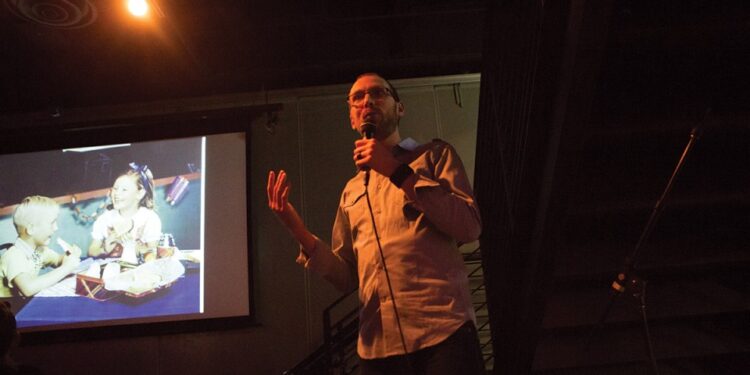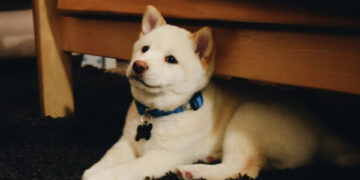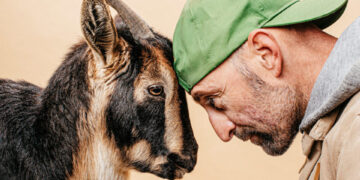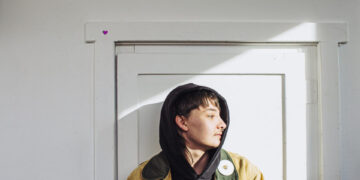Four nights a year, they gather in dark, hazy spaces just beyond the streetlamps.
Each participant is prepared with 20 projection slides each, showing images on a design topic of their choosing. They’ll take no more than 20 seconds to discuss each slide.
It’s called PechaKucha Night, this thing they do. It means “chit chat” in Japanese, and it’s not just happening in Omaha. It’s an evening of informal presentations that began in Tokyo in 2003 as a way for designers to concisely explain their most recent work. Now, more than 500 cities around the world host an evening of thinking and drinking for their local designers and other creative souls to share current projects.
Guests in Omaha pack places like Blue Sushi and The Slowdown to capacity in order to hear these sometimes witty, sometimes inspiring, sometimes awkward, but always highly individual presentations. Slides can be confusing, occasionally distasteful, and often beautiful.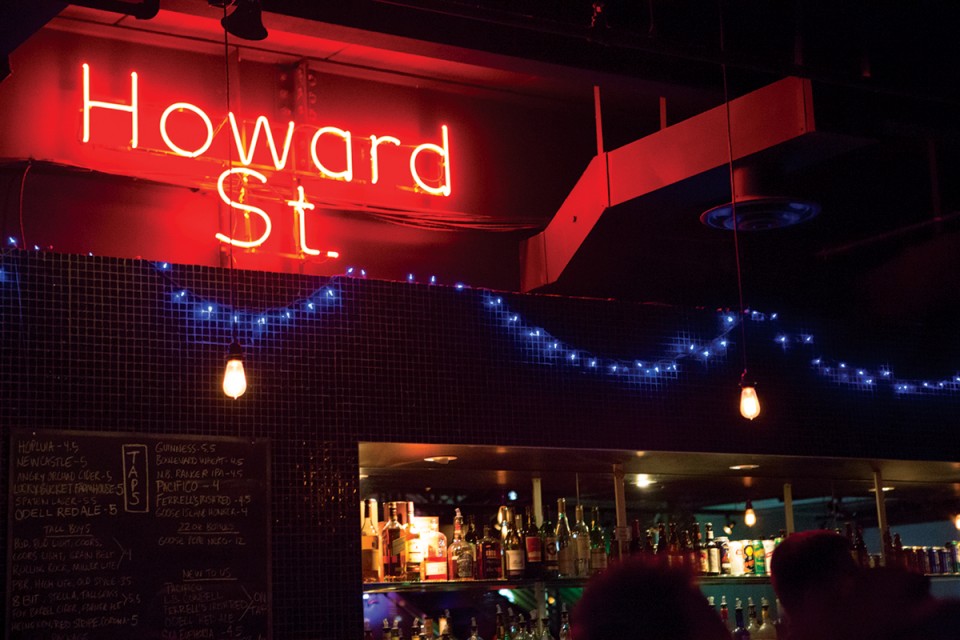
Speakers can and do discuss the design of anything and everything, including fashion, architecture, pottery, video games, prosthetics, car overhauls, and Native American heritage. Over the past five years that Omaha has been an official PechaKucha city, 179 people have braved the intimidation of public speaking to add their voices to the quarterly event, with anywhere from eight to a dozen speakers a night.
And yes, there is some mark of pride in being an official PechaKucha city, recognized by the PechaKucha organization based in Tokyo. Omaha organizers are Tom Trenolone, founder of design alliance OMAha, Inc. (daOMA), and Brian Kelly, an assistant professor of architecture at University of Nebraska-Lincoln. Trenolone had been looking for a way to get local talent to be part of a bigger, more international group. He credits Kelly with being the mastermind who’s kept PechaKucha going in Omaha.
“We were, I want to say, the 120th city to take it on,” Trenolone recalls. “We were sandwiched between Newcastle, England, and Oslo, Norway, on the site’s list.” He contacted Astrid Klein and Mark Dytham about introducing their Tokyo event to Omaha.
“The contract’s still just a handshake, really,” Trenolone says, referring to the relative informality of keeping Omaha listed on the PechaKucha website as a charter city. But Klein and Dytham were serious, he recalls, about making sure Omaha knew what PechaKucha had to include. “We had to explain why we wanted to put it on, and what we were trying to do. They wanted us to know we were overseers of the PechaKucha brand.”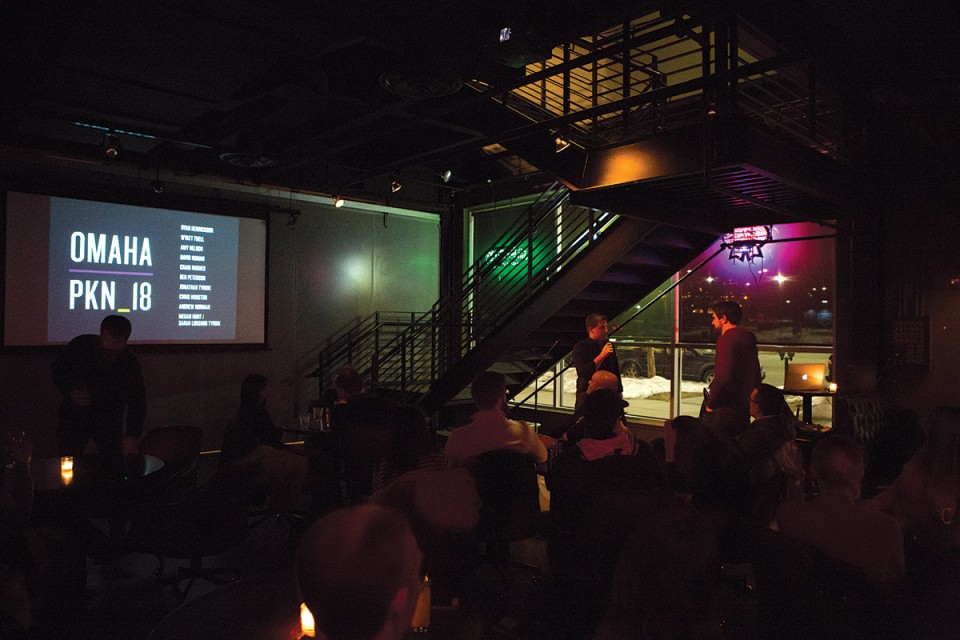
There are just a few rules that the couple wanted to make certain every PechaKucha city observed: Events are held at least four times a year, and beer breaks are mandatory. Yes, Trenolone and Kelly have to make certain the event takes place somewhere with a liquor license to facilitate the goal of getting guests to move around and chat about what they’ve seen so far. “Get people to have conversation,” Trenolone says, gesturing at the people moving like restless sardines in a tin can at The Slowdown. “The density is what we want. It adds to the feel.”
As far as gaining speakers for the next round of presentations, “We solicit at the end of the night from other speakers,” Kelly says. Word of mouth is another common way to bring in new presenters. There’s rarely a theme to a PechaKucha; Trenolone and Kelly say they’re just looking for a good narrative from each speaker.
“It’s the most poorly advertised, yet best attended design event in Omaha,” Trenolone says, only bragging a little.
To hunt down the next PechaKucha, check out daOMA’s Facebook page or browse pechakucha.org/cities/omaha.


